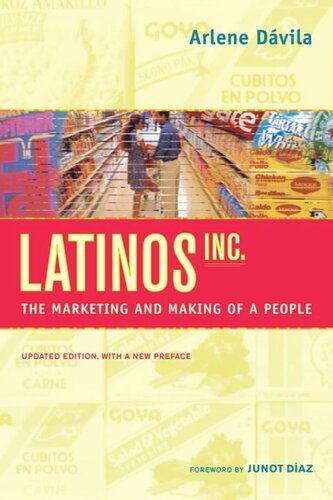

Most ebook files are in PDF format, so you can easily read them using various software such as Foxit Reader or directly on the Google Chrome browser.
Some ebook files are released by publishers in other formats such as .awz, .mobi, .epub, .fb2, etc. You may need to install specific software to read these formats on mobile/PC, such as Calibre.
Please read the tutorial at this link: https://ebookbell.com/faq
We offer FREE conversion to the popular formats you request; however, this may take some time. Therefore, right after payment, please email us, and we will try to provide the service as quickly as possible.
For some exceptional file formats or broken links (if any), please refrain from opening any disputes. Instead, email us first, and we will try to assist within a maximum of 6 hours.
EbookBell Team

4.7
66 reviewsBoth Hollywood and corporate America are taking note of the marketing power of the growing Latino population in the United States. And as salsa takes over both the dance floor and the condiment shelf, the influence of Latin culture is gaining momentum in American society as a whole. Yet the increasing visibility of Latinos in mainstream culture has not been accompanied by a similar level of economic parity or political enfranchisement. In this important, original, and entertaining book, Arlene Dávila provides a critical examination of the Hispanic marketing industry and of its role in the making and marketing of U.S. Latinos.
Dávila finds that Latinos' increased popularity in the marketplace is simultaneously accompanied by their growing exotification and invisibility. She scrutinizes the complex interests that are involved in the public representation of Latinos as a generic and culturally distinct people and questions the homogeneity of the different Latino subnationalities that supposedly comprise the same people and group of consumers. In a fascinating discussion of how populations have become reconfigured as market segments, she shows that the market and marketing discourse become important terrains where Latinos debate their social identities and public standing.